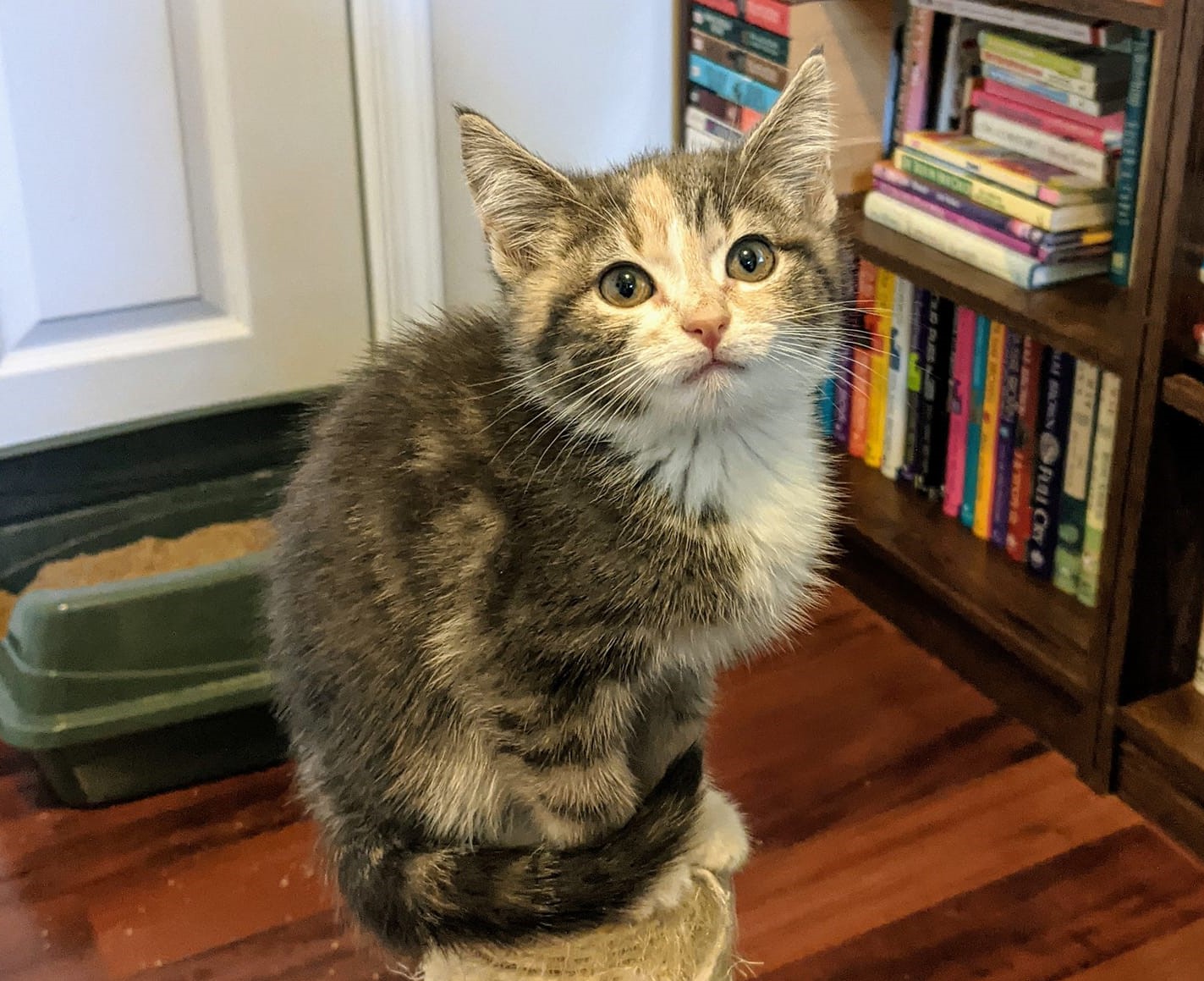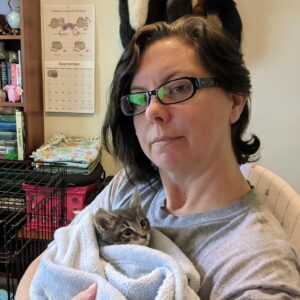Kitten Fostering 101

By Heather Nokes
“Kitten season” refers to the period from early spring to late fall when most kittens are born. This phenomenon is mostly due to warmer weather allowing stray or outdoor cats to venture out and begin procreating. Female cats become sexually mature as young as five months of age. In addition, because the gestation period for cats is only about two months long, they can have several litters in one year!
As kitten season ramps up, local shelters and rescues, like the Humane Society of Loudoun County (HSLC), are in dire need of kitten and cat fosters.
Why you should foster

Andi, pictured with little Ramone, has fostered over 130 cats and counting!
Fostering kittens is a rewarding experience. As a foster, you save lives while enjoying all the adorable antics that make kittens irresistible. One of HSLC’s expert kitten fosters, Andi, has been fostering cats and kittens—over 130 in total—with her husband since 2012! She had this to say about her fostering experience:
“The best part [about fostering] is being able to watch them go from sickly to healthy or from angry/scared, hissy-spitties to lap-loving cuddlebugs.”
What to know before fostering
Andi states that while kitten fostering is fun, it can also be a lot of work. You must watch the little souls closely to ensure they stay safe. If something seems odd, do not be afraid to ask questions (HSLC has an awesome foster coordinator who can help!) Be sure to love them unconditionally, and be happy to see them go to great homes.
What you need to foster
Kittens should be isolated from other pets in the home until vetted and given a clean bill of health. This is why setting up a “home base” for them is important. If they are young, a large dog crate will work; if older, an entire room would be a better fit.
Your home base should consist of:
- Clean, fresh bedding that is easy to change and wash.
- Soft surfaces that are not too high up, nothing that a kitten could get stuck in (trash can, boxes).
- A shallow litter box with a small amount of non-clumping litter.
- Shallow water and food dishes that are easy to clean.
- A healthy and safe environment for their foster kittens; any cleaning products should be removed from the kitten foster room.
- Small, soft toys that are not easily ingested or torn apart.
Kitten Veterinary care
The Humane Society of Loudoun County will pay for the veterinary care of its kittens. The first couple of vet visits often include deworming and/or flea treatment. If the kittens are healthy enough, vaccines and FeLV/FIV tests may be conducted. HSLC also spays/neuters around 4 months of age. More complicated reasons for a vet visit include diarrhea, dehydration and upper respiratory infections. For these conditions, medications may be sent home with the foster to give the kitten regularly. A healthy kitten is a happy kitten!
Saying goodbye
Saying goodbye may be the hardest part of fostering. It is important to remember that this is why you fostered, for a happy, healthy kitten to find a forever home!
Interested in giving cat or kitten fostering a try? Complete a no-obligation application today!
